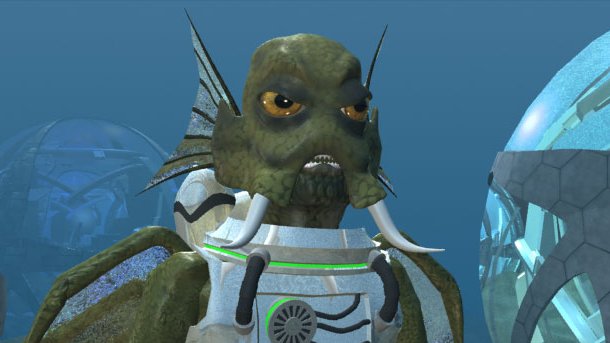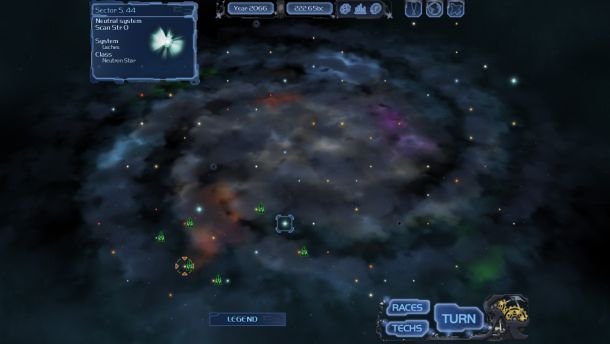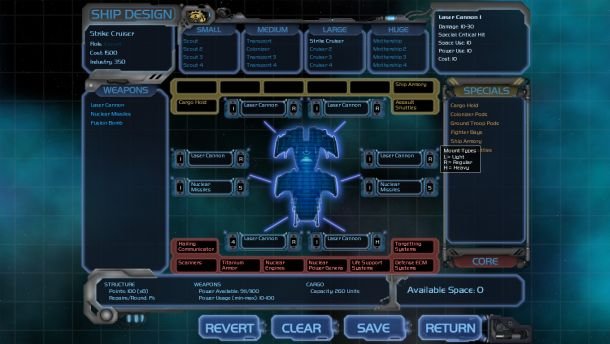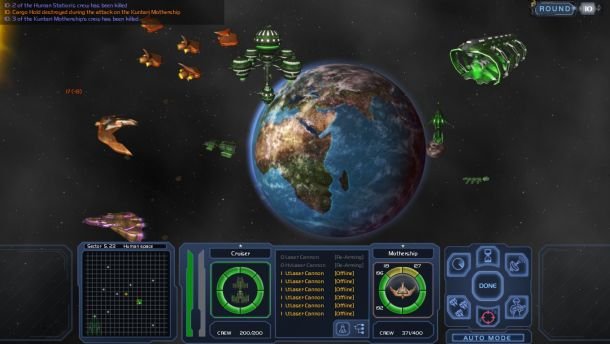Horizon preview: a 4X game by the standards of a bygone era

Director and Producer at L30 Interactive Raffi Parsekhian loves science fiction and 4X games so much he put up hundreds of thousands of his own dollars to develop Horizon. He says it's a 4X game in the tradition of Masters of Orion, Sid Meier's Alpha Centauri, and similar games that were more popular decades ago. You pick one of three playable races, and set out to explore, expand, exploit, and exterminate across the universe.
Horizon's universe is huge, spanning multiple galaxies, hundreds of star systems, and more than 1,000 planets. An embarrassment of riches in space stuff is one of its defining characteristics. It has 11 races, 80 branches to its tech trees, with 10 upgrades each, six paths along which you can develop each of your colonies, four classes of ships, each of which can be customized with boggling specificity, and so on. The universe is divided neatly into square tiles of empty space, glowing stars bursting with exploitable resources, and other xenos, to be met with either diplomacy or war.

Choosing from these tools and using them to react to encroaching races is the meat of the game, but Horizon also includes a “tactical phase,” which I thought was more trouble than its worth. At the tactical phase, the camera zooms in so you can see individual planets, objects, and take turns moving your ships around an even more detailed grid. This allows you to maneuver ships so you can attack the enemy from different directions, choose specific weapons to use, targets, and so on. At times you must use the tactical phase to execute mission objectives like boarding an enemy ship, but the combat wasn't interesting enough for me to choose to play it rather than choose to automate it and hope for the best results.
The tactical phase has depth, but there is so little feedback, and the art assets for these ships are so unremarkable, the only satisfaction I got out of it is knowing that I may have achieved better results than the automated option. Even today's digital card collecting games have figured out that audio and visual stimulus applied to mundane actions helps them feel exciting. The tactical phase here feel more like a battle between Excel spreadsheets.

Navigating through Horizon's universe of options means navigating through a lot of menus. Menus within menus, tiny little counters, ship layouts, and jargon specific to the 4X genre and even more specific to Horizon. It's intimidating, but Horizon does a good job of holding your hand until you manage on your own, and has mostly useful “help me” buttons you can press whenever you forget how to add a cargo hold to your scout ship, for example.
Mostly useful, not always. Early on with the beta I probably spent 15 minutes clicking around and eventually straight up yelling at the screen to please, for the love of god, tell me how to get my cruiser to orbit Pluto. I got it, eventually. The button was right there, but I couldn't find it nor the correct “help me” button.
Horizon explains itself well most of the time and keeps you on track by always giving you short-term missions to accomplish. Since it's still in beta and responding to a lot of player feedback, L30 can still make the necessary improvements to its tutorials, and, more importantly, its UI.
The biggest gaming news, reviews and hardware deals
Keep up to date with the most important stories and the best deals, as picked by the PC Gamer team.

Horizon's mythology is also overflowing with space stuff, but the gist really is that it's the future and there are aliens. Unfortunately, it's hard to take it seriously beyond that since it also looks and sounds like the old games that inspired it. Its presentation can be appreciated ironically, but I'd be remiss not to point out that its visuals and audio are dated in both concept and execution. It looks a little like the very first wave of pre-rendered 3D graphics, and sounds like a low budget space-opera.
Parsekhian's comparison of Horizon to the 4X games of yore is apt in more ways than I believe he intended. I'm personally in favor of the type of streamlining we've seen from the Civilization games in recent years, but if you see that evolution as a kind of “babyfication” of games, you're not entirely wrong, and Horizon is a good alternative. It's made with a lot of passion. If you share that passion you should definitely get involved with the beta.

